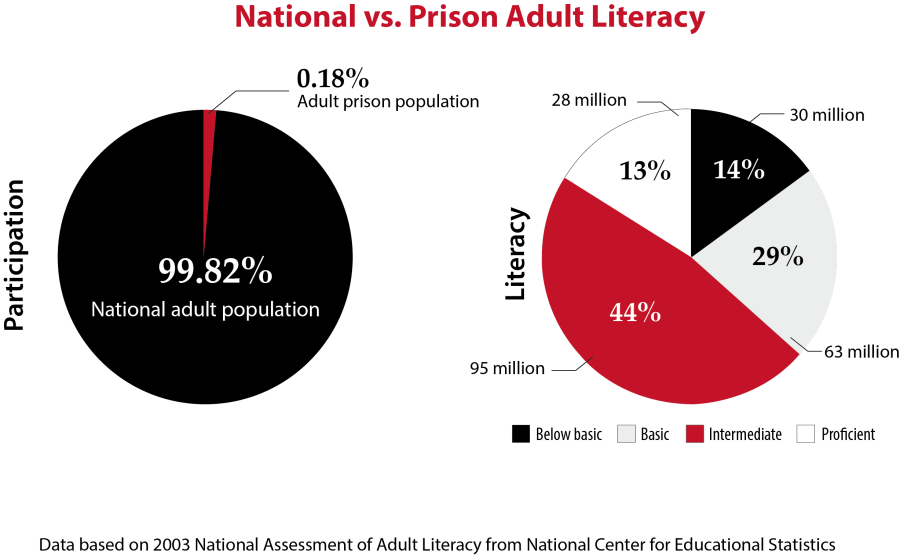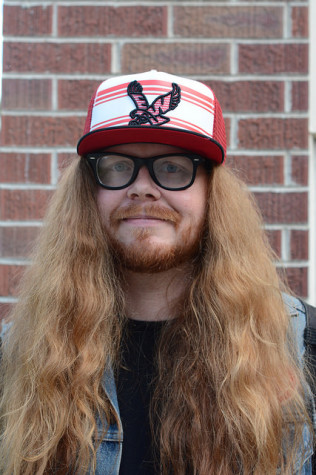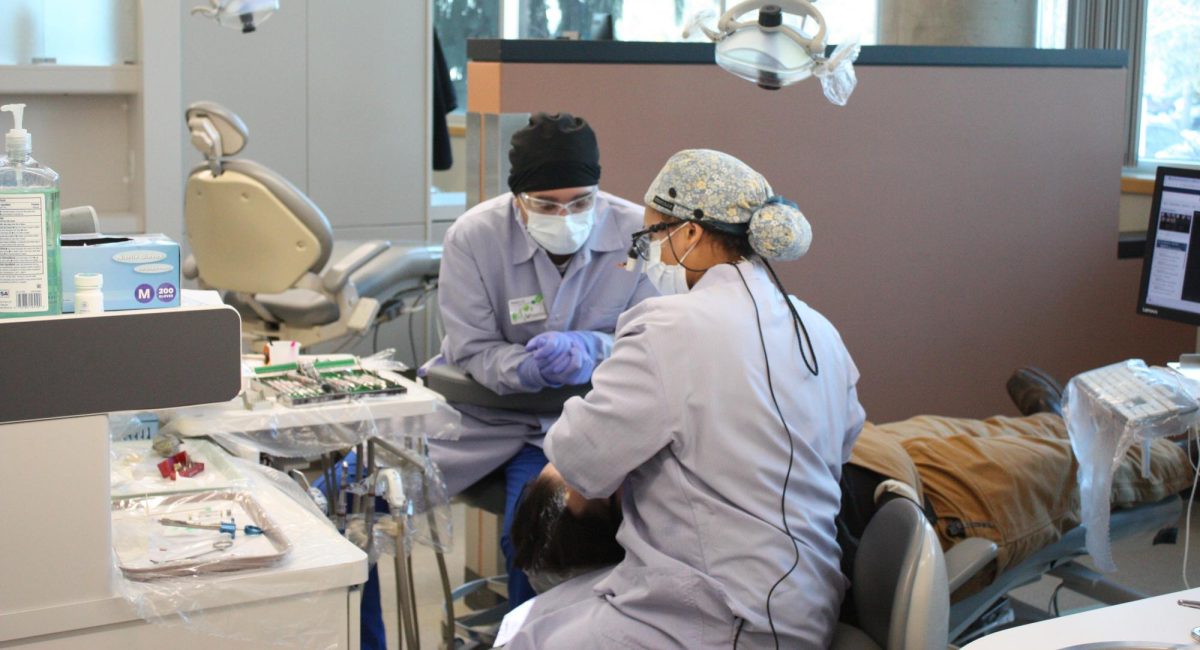Course partners students with prisoners
June 4, 2014
In prisons across the nation, there is a constant low-scale war between those incarcerated and the walls of the prison itself.
This fall, Eastern students will get the chance to help break down these walls, at least in a metaphorical sense.
For the first time ever, EWU will take a group of student volunteers to the Airway Heights Corrections Center to help inmates learn how to effectively write letters, in a new three-credit service learning course entitled “Literacy, Inequality and Prison.”
According to EWU Anthropology professor Dr. Michael Zukosky, the students in his anthropological linguistics classes have two options: write a research paper, or do service learning. Until now, most of the service learning has been done at the Spokane Salish School, in the Cheney and Spokane public school districts improving basic literacy and with World Relief, working with refugees.
“The experiences have been really good,” Zukosky said. “[Students] start thinking about the materials that they’re reading, and the classroom discussions, in sort of an observational context, while at the same time, providing a service. Actually helping people navigate obstacles and problems.”
In the fall of 2013, Zukosky came up with the idea for students to work with local prison education programs.
“The literacy rate in prisons is lower than the national average, and adult education kind of falls through the cracks,” Zukosky said. “I was thinking of it in the back of my mind, but logistically it seemed impossible, because of the background checks, and orientations and so on, to have, like, one student decide that they are going to do that service learning option.”
Zukosky said the concept grew from this idea until he actually spoke with Airway Heights Corrections Center and EWU about creating a new class.
Ann Wise, the community partnership program coordinator at the corrections center, said she met with Zukosky in November 2013 after his initial inquiry about potential volunteer opportunities that could involve a group of students as part of a course having to do with literacy.
“We came up with the idea of letter writing,” Wise said. “The main way that offenders communicate with their families is through letter writing. The more literate they are, the more they will be able to do that.”
Wise said she believes that the course will be a good thing for those incarcerated
“We worked really closely with [Zukosky] on the description,” Wise said. “There will be weekly sessions for the offenders with student mentors focused on letter writing, and examples will be presented with different topics that will be discussed with the offender students. Then, the offenders will be encouraged to write their own letters. Those letters will be reviewed by the EWU students, and correction made, or suggestions made, and then given back to the offenders for them to learn.”
EWU students have to follow all of the requirements of any other volunteers at the facility, including a volunteer application, background checks and a three hour orientation.
“Ideally, there is already some sympathy, some empathy, and some compassion for those who are in prison,” Zukosky said. “That is a hard thing to teach. I am really hoping that the students who sign up have that starting point.”
According to Wise, it is a privilege for the offenders to get into the class. They cannot have any infractions on their record and there cannot be any conflicts in their scheduling or programming.
“The offenders obviously can’t be ‘in the hole’ or anything like that,” Wise said. “If they are interested, our requirement is that they are able and willing to read and write and actively participate in the class, and that they must commit to each session.”
There will be one weekly meeting at EWU and one at the corrections center. At the facility, there will be a secure classroom reserved for the class. After some open discussion, EWU students will work one-on-one with the inmates on their letters.
Zukosky said that he is interested in looking at the problems in prisons from many different angles. He said that even though incarceration is what society has chosen as a way to do deal with people who break the laws, it can be a very inhumane system.
“People do crazy things, and we do need to deal with them as social problems,” Zukosky said. “But incarceration doesn’t solve the whole picture. Our society has economic and structural issues.”
While he sees the value of opposing the prison system entirely, Zukosky said people who take that stance often forget that there are people incarcerated right now, and the issues they are dealing with need to be addressed.
According to Zukosky, some of the problems include the rate of drug and alcohol addiction, mental illness, chronic unemployment and general economic inequalities people endure before they are incarcerated.Once in prison Zukosky said the rates of depression, suicide and infectious diseases go well above the national average.
Besides helping offenders reconnect with family and friends though informal letters, Zukosky said one of his goals is to help offenders craft letters that will reach state representatives and other public officials, who may be able to take actions to improve the lives of the incarcerated and the corrections center’s administrators.
“It’s a great opportunity both for us, and for EWU,” Wise said. “My goal is to get volunteers into the facility that could role model appropriate pro-social behavior to the offenders. It’s great that [EWU] is offering a program that will actually help the offenders, and continue to bring that pro-social behavior to their families by writing them letters, and being able to communicate with them while they’re here.”
Zukosky said the goal of the program is to give offenders the best possible experience while they are incarcerated, to have them serve their sentence with dignity, integrity and to grow and develop.
“It sounds bizarre, but you have a lot people who are really trying to work to improve the lives of the prisoners,” Zukosky said. “The prison wall is supposed to cut off the relationships between the offender and the people on the outside. We want to break down the wall, and rebuild their relationships with the community
.”









